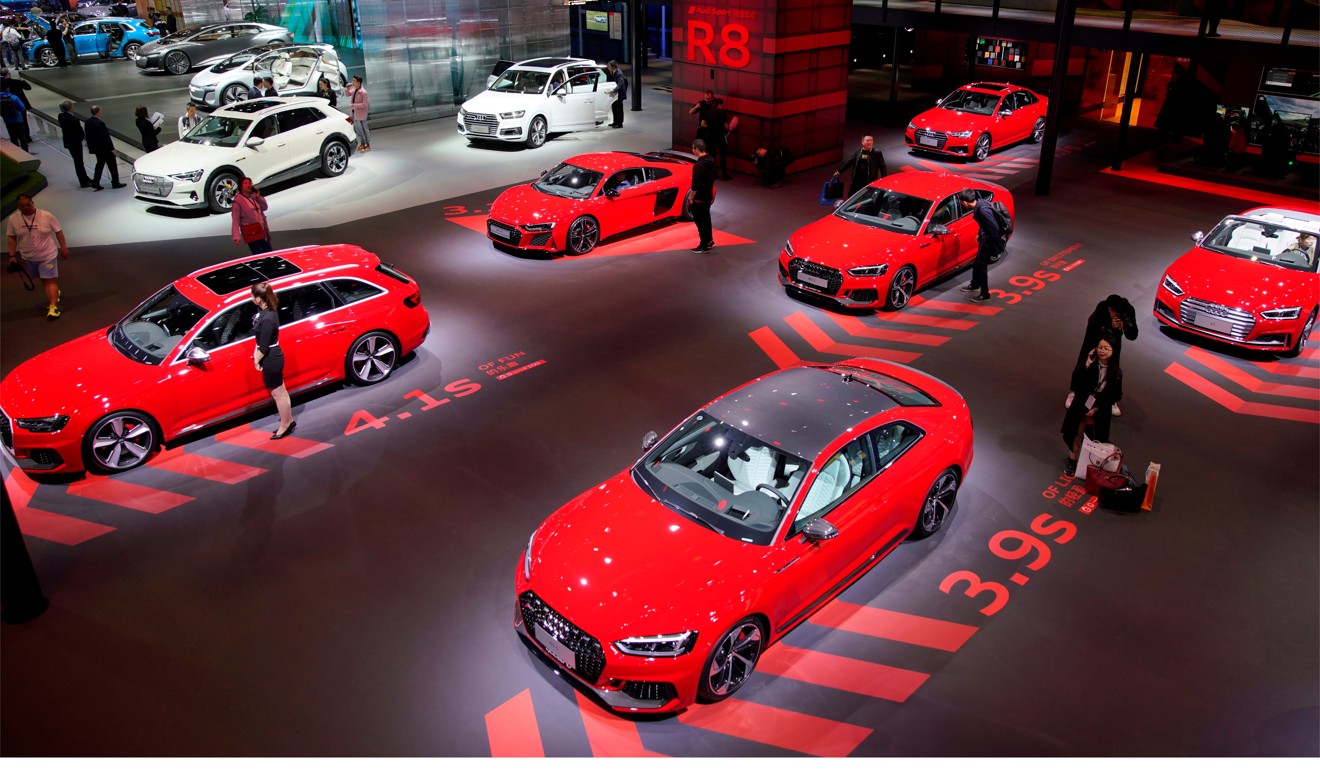
China’s consumption upgrade props up shrinking car market with locally made premium models flying off the assembly line
- Sales of 10 premium brands, which includes BMW, Mercedes-Benz, Audi, Volvo and Lexus, have risen in a steeply declining market
- Overall car sales in China have fallen 11 per cent in the year’s first eight months to 16.1 million units
The sole ray of sunshine in China’s bleak car market is the luxury segment. While overall sales have shrunk in 14 of the past 15 months, rich consumers have been snapping up locally made premium models, helped by competitive pricing.
“The relatively more resilient demand for premium cars is driven by China’s consumption upgrade,” said Toliver Ma, an auto sector analyst at brokerage Guotai Junan International. “Affluent consumers are still willing to spend, even as the economy has long been slowing. That said, even premium car sales have slowed.”
The sales of 10 premium brands, which includes BMW, Mercedes-Benz, Audi, Volvo and Lexus, have risen in a steeply declining market.
Car sales on the mainland fell 9.9 per cent year on year in August, according to China Passenger Car Association, with overall sales declining 11 per cent in the year’s first eight months to 16.1 million units. In the first 22 days of September, weekly sales tracked by the association showed a sharper 11.8 per cent decrease.
Here’s why big investing firms are steering clear of China’s expensive, underperforming new-energy car sector
However, sales of China-made BMW cars jumped 25.9 per cent in the first half from the same period last year to 264,194 units, according to the German giant’s joint venture partner Brilliance China Automotive.
This was primarily due to the contribution of X3, a compact crossover SUV. Excluding the X3’s sales, first-half volumes grew only 1 per cent. It is BMW’s sixth model produced in China since June last year.

Similarly, sales at Beijing Benz, the joint venture of Germany’s Daimler and Beijing Automotive Industry, grew 11.9 per cent to 282,000 units, largely due to outstanding sales of the Mercedes-Benz A-Class cars.
While German brands have long been the most popular choice of premium cars among mainland consumers, some have been lured by price discounts offered by rival brands amid the economic slowdown.
“Most of my friends prefer German cars, and I was thinking of buying a Mercedes too,” said Wu Junchen, a Shanghai-based businessman, who in July bought a Range Rover for less than 750,000 yuan (US$105,000).
He was attracted by a discount of almost 200,000 yuan given by the dealer eager to clear inventory, ahead of the roll-out of more stringent auto emission standards in eastern China.
What kind of stimulus do China’s half-idle car assemblies need to restart stalled sales in the world’s largest vehicle market?
“Fewer people want to buy a cheap car these days, especially those in business, as they represent your pocket, face and credibility … quality cars are also safer and more spacious.”
Meanwhile, Volvo Cars, owned by China’s Zhejiang Geely Holding, saw domestic sales in the year’s first seven months grow 12.3 per cent from the same period last year. It was higher than the Swedish firm’s global sales growth of 10 per cent and made up a fifth of its worldwide total.
“It was much about the interest in our new products, which is true not only in China but also in Asia,” Agneta Jilden, head of Asia-Pacific commercial programme manager at Volvo Cars, said during a car launch in Hong Kong last week. “Since 2015, we have launched all the new generations of our cars in China, some of which are made locally.”

